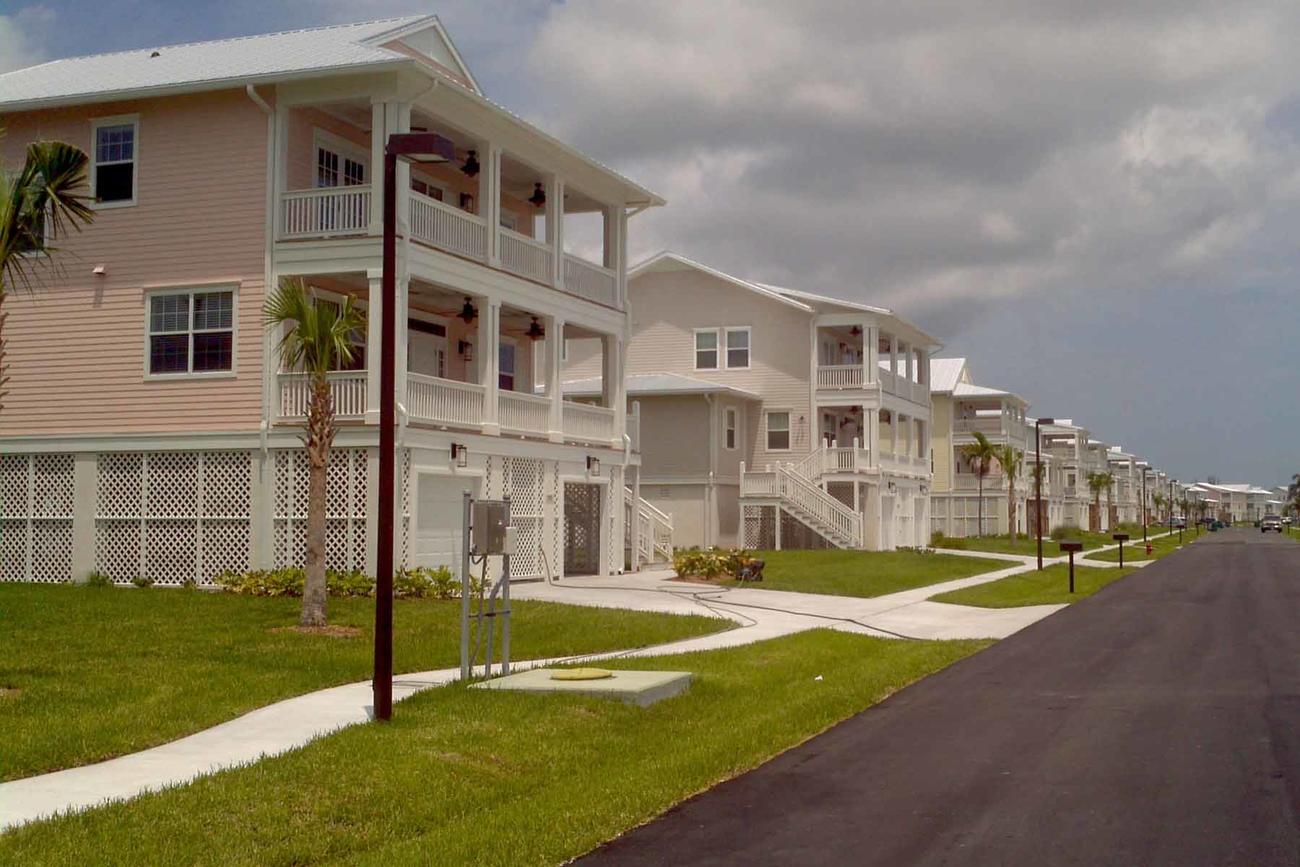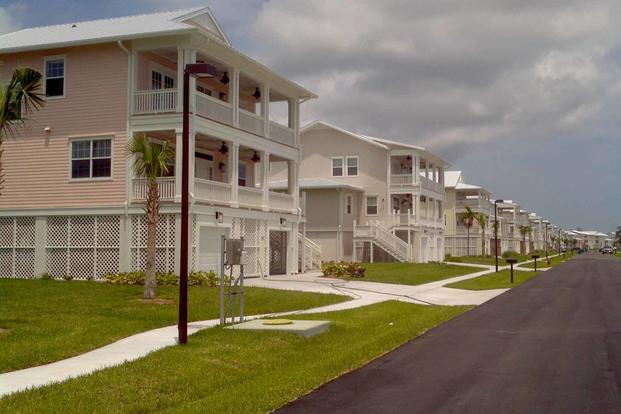

A group of nearly 200 current and former residents of Naval Air Station Key West has filed a lawsuit claiming that the contractor the Navy used to maintain family houses on base has committed fraud and negligence for at least a decade and exposed them to dangers ranging from toxic mold to asbestos.
The lawsuit, filed in Florida state court, alleges that Balfour Beatty, a massive company that manages more than 40,000 military homes across more than 50 bases, “concealed the horrific conditions from unsuspecting service men and women and their families” and then, “when these conditions were discovered and reported, Balfour systematically failed to properly repair and remediate significant problems.”
Balfour Beatty has a long history of perpetuating fraud and mismanagement against military families, having been repeatedly sued and forced to pay millions in restitution and fines just in the last several years alone.
Read Next: Tricare Again Extends Deadlines for Beneficiaries in Western US After Contract Change
The lawsuit is also yet another blow for service members stationed in Key West. The Navy base has struggled with housing issues for years. In 2022, Military.com reported that the service booted all its junior sailors from barracks on base in order to conduct renovations, but since the installation is located in a small island community, those sailors struggled to find housing and some had to resort to camping.
A year later, sailors told Military.com that the problem hadn’t improved and that the base was struggling to attract service members for key jobs like air traffic controllers.
Balfour Beatty told Military.com in a statement Friday that they were “aware of the complaint and intend to defend ourselves vigorously.”
According to the complaint, which was filed Thursday afternoon, “Balfour systematically failed to properly repair and remediate significant problems in the homes, including water damage, mold, structural defects, HVAC, plumbing issues, electrical problems, and the presence of lead paint and asbestos.”
Not only that, the suit alleges that Balfour then misled the numerous families into “believing that repairs were made, knowing that families living in the homes would likely suffer serious health problems as a result of the conditions.”
The lawsuit features testimonials from numerous families who describe terrible conditions, including dozens of ceilings that caved in from water damage and homes with extremely elevated levels of toxic mold.
Many of the initial problems like water damage and mold allegedly were compounded by either Balfour’s shoddy efforts at repair or the fact that they would reveal further dangers in the homes.
When service members called Balfour to try and get the problems fixed, the lawsuit alleges that the company’s technicians and contractors provided “grossly subpar maintenance, and often made matters much worse.”
“At times, Balfour employees opened up walls or ceilings to remove mold, in the process exposing the residents to asbestos,” the complaint said, later noting that the company would also fail to follow “critically important asbestos abatement procedures.”
The lawsuit also alleges that multiple families “were exposed to lead from chipping and peeling paint,” which was sometimes caused by water leaks and mold infestation.
“Defendants’ ‘maintenance’ was often worse than subpar — it was dangerous,” the lawsuit claims.
However, this is far from the first time that Balfour Beatty has faced these types of allegations or even been sued over them.
Balfour Beatty was caught up in a nationwide scandal over squalid family housing in 2019 and pleaded guilty in 2021 to falsifying maintenance records going back to 2013. The company was ordered to pay $65.4 million in fines and restitution for misconduct relating to its military housing practices in federal contracts.
Despite that, in 2022 an eight-month investigation by a Senate Homeland Security and Government Affairs panel found the poor living conditions were still present.
When Richard Taylor, a top executive for the company, was hauled before Congress in 2022, he argued that most residents were happy with their service but did concede that “things go wrong. We don’t always get it right the first time. We’re not perfect. We’ve never testified that we are a perfect organization.”
The Pentagon and the services have known about the problem for years but seemed to be unable or unwilling to fully grapple with the situation.
In 2019, ahead of yet another congressional hearing on poor living conditions, the Pentagon rolled out a “Tenant Bill of Rights” that was designed to “ensure that service members and their families have safe, quality homes and communities.” The document was “intended to increase the accountability of privatized housing companies” by giving local military leaders more oversight authority over base housing.
It included 18 provisions that were aimed at giving military families leverage when they found themselves in a toxic living environment.
However, the response has been mixed at best, and surveys showed that many families don’t know about the policy and even fewer tried using it.
The lawsuit cites several instances in which Balfour either blocked Navy officials from viewing homes for themselves or dismissed their concerns.
In one instance, a family member affected by shoddy housing in Key West had also worked for Balfour in 2022 and, according to the lawsuit, “witnessed them engage in fraudulent and deceptive practices.”
“Employees were instructed to lie to Navy housing inspectors, block visible damage, and select only “perfect” files for audits,” the lawsuit alleges.
The case against Balfour includes claims of fraud, breach of contract, gross negligence, negligent infliction of emotional distress, and violations of Florida’s Deceptive and Unfair Trade Practices Act.
If the plaintiffs prevail, they are asking a jury to award the families an unspecified amount of compensatory and punitive damages.
Editor’s note: This story was updated with a statement from Balfour Beatty.
